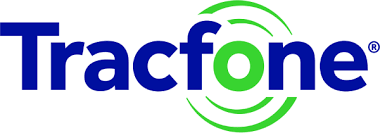UPDATE The FCC Enforcement Bureau and Verizon Communications (NYSE: VZ) subsidiary TracFone Wireless reached a deal to resolve investigations into whether Tracfone violated Commission rules for the Lifeline and Emergency Broadband Benefit (EBB) Programs as well as a 2020 enforcement action.
Following its acquisition by Verizon, TracFone self-identified and reported to the Commission and the Universal Service Administrative Company certain instances in which it may have violated those program rules. Under the settlement, TracFone will pay a $17.4 million civil penalty. The carrier will also pay an additional $6 million to resolve a 2020 Notice of Apparent Liability for other apparent Lifeline violations. TracFone has also agreed to compliance measures.
“Whether attributable to fraud or lax internal controls, or both, we will vigorously pursue allegations of misconduct that harms critical FCC programs designed to help those most in need of communications-related services,” said Enforcement Bureau Chief Loyaan Egal. “This settlement sends a strong message that we are determined to protect the integrity of these programs.”
The Enforcement Bureau investigated TracFone’s procedures for determining customer use, which are critical for ensuring public funds are not subsidizing unused connections, according to the bureau. TracFone told the FCC that its internal processes resulted in Lifeline claims for customers who had not used the service in the prior 30 days, contrary to the Commission’s rules.
Specifically, TracFone’s internal systems improperly considered a subscriber’s receipt of an inbound text message to constitute qualifying Lifeline usage. The systems also improperly claimed support for a group of customers who were enrolled jointly in both the Lifeline and EBB programs, but did not use one of the services in the prior 30-day period, according to the bureau.
TracFone also said that a group of its field enrollment representatives used falsified tax documents to enroll subscribers in TracFone’s Lifeline and EBB services. After working with auditors, TracFone reimbursed the Universal Service Fund a total of $22.6 million for Lifeline from January 2019 through October 2021. It also paid back $17.8 million in EBB funds. TracFone further said that 79 field enrollment agents were paid commission-based compensation tied to the number of customers enrolled. Commission rules prohibit such arrangements.
To resolve these cases, TracFone entered into a Consent Decree with the Enforcement Bureau in which it agreed to a series of terms and conditions for future compliance that take into consideration TracFone’s voluntary disclosures and its cooperation during the investigation. TracFone also agreed to pay a little over $6 million to resolve a 2020 Notice of Liability (NAL) alleging the company claimed federal Lifeline funding for thousands of Texas customers who apparently were not eligible for the program. The NAL also alleged TracFone enrolled consumers in Florida that resulted from sales agents apparently manipulating customer data to create fake accounts.
The Lifeline program provides a monthly discount of up to $9.25 on broadband and phone service for qualifying low-income consumers. Carriers participating in the program receive funds for each eligible Lifeline subscriber and must pass the savings on to those subscribers. The Lifeline program is paid for using Universal Service Fund dollars, and that money comes from fees assessed on the phone bills of American consumers and businesses. The separately funded EBB program helped lower the cost of high-speed internet and connected devices for eligible households in 2021 during the COVID-19 pandemic.
By Leslie Stimson, Inside Towers Washington Bureau Chief





Reader Interactions